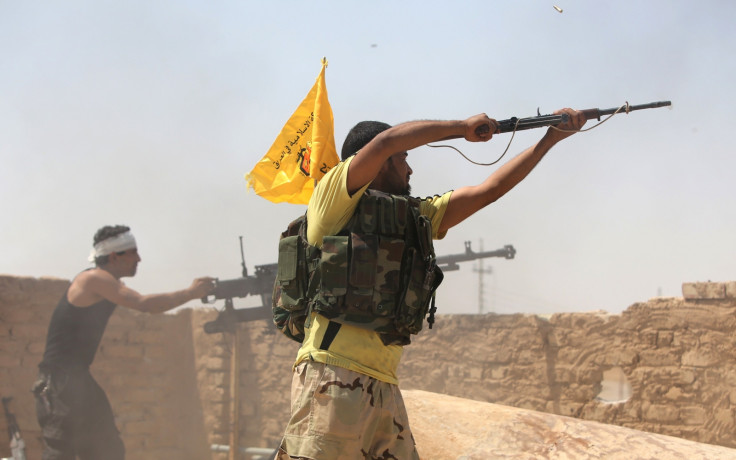Isis fighter burned alive: Shi'ite militias fuelling Iraq's collapse along sectarian lines

An Iraqi pollster claims empowering religious paramilitary groups to counter the Islamic State (Isis) could be counterproductive.
The recent emergence online of footage showing Shi'ite militiamen burning a jihadi fighter in Iraq is a case in point and reinforces fears that the country could as a result be further split along sectarian lines.
The clip depicts a group of fighters, including one wearing the insignia of an umbrella Shi'ite volunteer force, the Popular Mobilisation, hanging a man upside down and burning him alive.
The video emerged on Facebook after Shi'ite paramilitary groups took part in a counter offensive on the capital of Anbar province, Ramadi.
A recent study by Iraqi pollster IIACSS showed how the decision to deploy Shi'ite militias to wrestle back areas that fell to IS was likely to push Iraqi Sunnis towards the extremist group, fuelling the country's divide.
The survey was conducted in three tranches over one year, starting in June 2014 when IS seized Iraq's second largest city, Mosul, and declared the establishment of a caliphate.
IIACSS said it interviewed more than 2,000 people nationwide, including in areas controlled by IS, with the last sample of 800 individuals surveyed in April.
Opposition to Islamic State
Both Sunnis and Shi'ites participants overwhelmingly said they oppose IS, preferring a secular state instead, and feel fighting the radical Sunni group is a priority.
Despite the spectacular collapse of Iraqi forces in 2014, most interviewees still perceived the army as the institution better placed to return the country to normality, while Shi'ite militias are feared and distrusted, especially in the areas they have to liberate.
This is a clear indicator that if you want to defeat IS you should rely more on Iraqi national institutions. You cannot liberate these areas using these militias
According to a section of the poll surveying only Sunnis, almost 65% of them said the army had a positive influence upon the internal situation in Iraq, while an overwhelming majority (between 63% and 76%) said Shi'ite militias acted as a negative force in the conflict scenario.
Only IS scored more, with 94.4% of Sunni Iraqis describing its influence as negative.
Some 66% of respondents said they were concerned about the deployment of Popular Mobilization Forces, in the Tikrit area.
The share was significantly higher in Anbar (76.6%) and Nainawa (86.9%), where Ramadi and Mosul are located.
A staggering 85.5% of Sunni motived their unease saying they feared acts of revenge similar to those depicted in the video.
A lesser evil
IS seemed to be perceived as a lesser evil if compared to Shi'ite militias. Only 2% of those surveyed said they preferred to live under the jihadi group against 98% favouring Baghdad's government, despite its clear Shi'ite-leaning stance.
But the proportion changed dramatically in response to a question asking whether living under IS was better than allowing Shi'ite militias to enter Tikrit's Saladin Governorate and Mosul, with 45% answering it was.
"This is a clear indicator that if you want to defeat IS you should rely more on Iraqi national institutions" said IIACSS founder and Ceo Munqith Dagher. "You cannot liberate these areas using these militias".
The decision to use the Popular Mobilisation in Ramadi, which fell to IS in May, was supported by a US-led coalition that had initially opposed such moves.
Foreign involvement was also not well received, with almost 87% of interviewees being wary of Iran's support against IS and 51.5% similarly distrusting a US-led international coalition.
Interestingly, adverse sentiment towards Tehran was sky high in the embattled provinces of Anbar (90.7%) and Nainawa (97%).
'Challenge the narrative' to make progress
"If we want to make progress in fighting Islamic State we must challenge the narrative that they are so successfully pushing, that means understanding how we can build a bridge between Sunnis and Shi'ite in Iraq," Dagher wrote in an accompanying article co-written by Johnny Heald of London-based pollster ORB International.
The task seemed to be quite difficult, as data collected across the nation from 2008 to 2014 underscored a sharp decline in Iraqis describing themselves as "Iraqi above all" from 80% to only 40%.
© Copyright IBTimes 2025. All rights reserved.




















